Independent Living for Young Adults
For many young adults, the transition to independent living marks a significant milestone. It’s a time filled with both excitement and challenges. Independent living programs offer support to navigate these changes, providing essential skills for young adults, including those with autism. These programs help in areas like stress management, financial independence, and social integration.

What are Independent Living Programs?
Independent living programs are designed to support young adults as they transition from a structured home environment to living on their own. These programs focus on equipping individuals with the skills needed to handle daily responsibilities and thrive in a more independent setting.
General Objectives
- Skill Development: Teaching essential life skills such as cooking, cleaning, and managing personal finances.
- Emotional Support: Offering counseling and therapy sessions to address mental health needs.
- Social Integration: Providing opportunities to build meaningful relationships and participate in community activities.
These objectives ensure that young adults are not just surviving but thriving as they step into the next phase of their lives.
Independent Living for Adults with Autism
Young adults with autism face unique challenges when transitioning to independent living. They may struggle with social interactions, sensory sensitivities, and maintaining routines. These challenges can make it difficult to achieve independence without specialized support.
Benefits of Tailored Programs
Tailored independent living programs can address these specific needs. By offering customized support, these programs help young adults with autism develop the skills necessary for independent living.
- Personalized Care: Programs provide individualized plans that cater to each student’s unique requirements.
- Structured Support: Consistent routines and clear expectations help reduce anxiety and build confidence.
- Therapeutic Interventions: Specialized therapies, such as social skills training and behavioral therapy, aid in overcoming social and emotional barriers.

Key Components of Independent Living Programs
Academic Support
- Personalized Academic Plans: Tailored academic strategies ensure that each student can reach their educational goals.
- Importance of Academic Success: Staying on track with schoolwork fosters a sense of accomplishment and prepares students for future career opportunities.
Therapeutic Support
- Types of Therapies Offered: Programs include various therapeutic options, such as cognitive-behavioral therapy, group therapy, and individual counseling.
- Emotional Well-being: Regular therapeutic sessions help students deal with stress, anxiety, and other mental health challenges.
Social Support
- Building Meaningful Relationships: Encouraging interactions with peers through structured social activities and events.
- Activities and Social Events: Opportunities for socializing help students develop essential communication skills and build friendships.
Stress Management
- Coping Mechanisms: Programs teach valuable coping strategies, such as mindfulness and relaxation techniques, to handle stress effectively.
- Emotional Resilience: Regular counseling sessions help build emotional strength, allowing students to face challenges without feeling overwhelmed.
Money Management and Bills
- Budgeting Skills: Students learn to create and stick to a budget, understanding income, expenses, and savings.
- Bill Management: Guidance on managing monthly bills like rent, utilities, and groceries ensures students can handle financial responsibilities.
Working and Job Skills
- Employment Preparation: Programs offer job training and resume-building workshops to prepare students for the workforce.
- Work-Life Balance: Students learn to balance job responsibilities with personal time, ensuring a healthy lifestyle.

What to Expect at Arise Living Facility
At The Arise Society, we focus on creating a supportive and structured environment for young adults. Here’s what you can expect:
Daily Routines
- Structured Schedule: Students follow a well-planned daily routine that includes study time, therapy sessions, and recreational activities.
- Academic Focus: Dedicated time slots for attending classes and academic work ensure students stay on track with their education.

Safety Rules and Regulations
- Supervised Environment: The facility is supervised 24/7, ensuring students have access to support whenever needed.
- Safety Protocols: Strict safety rules, including emergency procedures and regular check-ins, help maintain a secure environment.
Available Support Services
- Mentorship: Experienced mentors are always available to offer guidance and support, helping students navigate daily challenges.
- Therapeutic Support: Regular therapy sessions address mental health needs, providing emotional and psychological support.
- Social Activities: A range of social events and activities promotes interaction and community building, helping students develop friendships and social skills.
The Arise Living Facility is designed to provide a balanced blend of independence and support, ensuring each student can develop the skills needed to thrive in the real world.
Benefits of Independent Living Programs
Independent living programs offer numerous advantages, empowering young adults to navigate life’s complexities with confidence and skill. Here are some key benefits:

Improvement in Mental Health
- Emotional Stability: Regular therapeutic sessions help manage anxiety, depression, and other emotional challenges.
- Stress Reduction: Learning effective coping mechanisms eases the transition to independent living.
Increased Independence and Confidence
- Skill Acquisitions: Gaining practical life skills, such as cooking and budgeting, fosters self-reliance.
- Boosted Self-Esteem: Success in managing daily tasks and achieving personal goals enhances self-confidence.
Enhanced Social Skills
- Relationship Building: Social activities and group therapies encourage meaningful interactions and friendships.
- Effective Communication: Programs focus on improving communication skills, which are essential for personal and professional relationships.
Academic and Vocational Achievement
- Educational Success: Personalized academic plans ensure that students reach their educational milestones.
- Career Preparation: Job training and work experience programs pave the way for future employment opportunities.
Case Studies and Success Stories
Real-life success stories highlight the transformative impact of independent living programs. Here are a few examples:

Case Study 1: Sarah’s Journey to Independence
Sarah, a young adult with autism, joined an independent living program after struggling with social interactions and routine management. Through personalized support and therapy, Sarah learned essential life skills. She gained confidence, made friends, and successfully transitioned to living independently. Today, Sarah holds a part-time job and is pursuing higher education.

Case Study 2: David’s Academic Triumph
David faced difficulties with focus and motivation due to ADHD. The independent living program provided him with structured academic support and mentoring. With personalized study plans and regular check-ins, David managed to improve his grades significantly.
Case Study 3: Emily’s Social Growth
Emily, who struggled with anxiety and depression, found it hard to connect with others. The social activities and group therapies in her independent living program helped her overcome these barriers. She gradually built meaningful relationships and developed effective communication skills.
These stories demonstrate that with the right support, young adults can overcome their challenges and achieve remarkable progress.
Choosing the Right Program
Selecting the right independent living program is crucial for the success and well-being of young adults. Here are some factors to consider:
Location
- Proximity to Family and Friends: Choose a location that allows easy visits and support from loved ones.
- Accessibility: Ensure the program is near essential facilities like colleges, workplaces, and healthcare centers.
Type of Support Offered
- Personalized Plans: Look for programs that offer individualized care plans tailored to your specific needs.
- Comprehensive Services: Ensure the program includes academic support, therapeutic services, and social activities.
Staff Qualifications
- Experienced Professionals: Verify that the staff includes qualified therapists, mentors, and healthcare providers.
- Student-Staff Ratio: Consider programs with a low student-to-staff ratio to ensure personalized and attentive care.
Program Reputation
- Success Rates: Research the program’s track record and success stories.
- Accreditation: Ensure the program is accredited and meets industry standards for care and support.
Conclusion
Independent living programs pave the way for young adults to lead fulfilling and self-sufficient lives. Whether dealing with autism or other challenges, the right support can make all the difference. These programs provide essential skills, emotional support, and social integration, empowering individuals to handle real-life situations confidently.
At The Arise Society, we stand by our mission to foster independence through personalized and relationship-based care. Our comprehensive approach ensures that each student can thrive in both their personal and academic pursuits. As they transition into adulthood, our students not only gain confidence but also develop the resilience needed for lifelong success.
Explore how the right program can meet your needs or those of your loved ones by contacting The Arise Society. Begin the journey to independence with the support that can pave the way to a bright and promising future.
Frequently Asked Questions
-
What are the benefits of independent living programs for young adults?
- Independent living programs offer mental health support, practical skill development, and increased confidence and social skills, all of which equip young adults to lead independent lives.
-
How do independent living programs help adults with autism?
- Tailored programs provide personalized care, structured routines, and specialized therapies to address the unique challenges faced by adults with autism, helping them develop essential life skills.
-
What kinds of support are provided in independent living programs?
- These programs offer academic support, therapeutic sessions, social activities, and practical life skills training to ensure well-rounded development and independence.
-
What should I consider when choosing an independent living program?
- Important factors include location, type of support offered, staff qualifications, program reputation, and success rates to ensure that the program meets the individual’s needs.
-
What can I expect at a facility like The Arise Society?
- The Arise Society offers a structured daily routine, safety rules and protocols, 24/7 mentorship, therapeutic support, and social activities designed to foster independence and personal growth.
